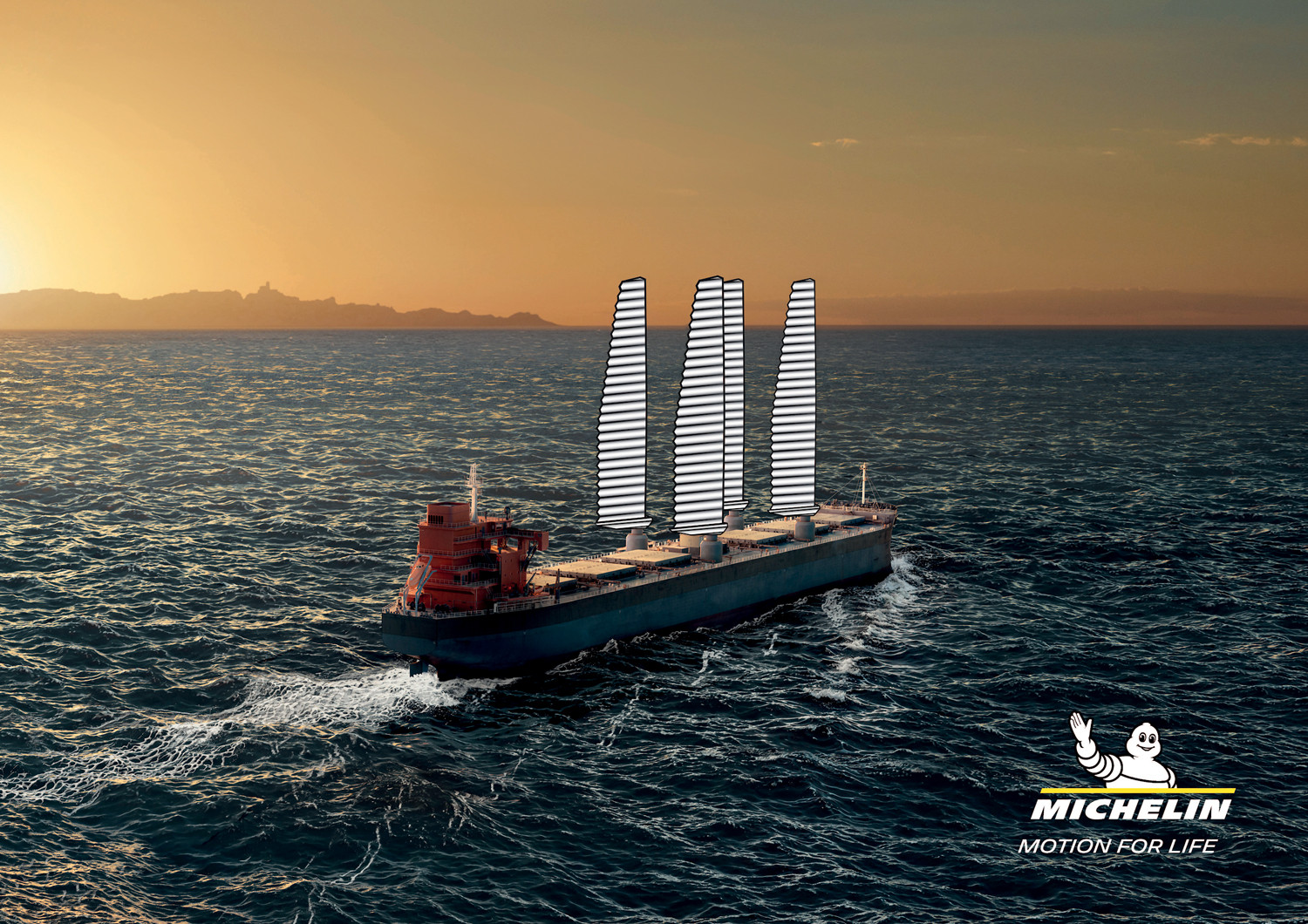Among these solutions, Michelin's WISAMO stands out, combining advanced technology with environmental stewardship to revolutionize how vessels navigate the seas while significantly reducing emissions.
Addressing environmental challenges in maritime transport
The ongoing evolution of the maritime transport industry has prompted the International Maritime Organization (IMO) to introduce regulations aimed at significantly reducing greenhouse gas emissions.
The IMO's 2023 amendment strategy sets an ambitious target for international shipping to achieve net-zero emissions by 2050. To realize this goal, emissions must be reduced by at least 20% by 2030, with aspirations for a 30% reduction, and at least 70% by 2040, compared to 2008.
In response to this challenge, numerous emerging companies are focusing their efforts on developing sustainable wind power solutions to expedite carbon reduction within the maritime sector. WISAMO by Michelin is one notable initiative that opens a promising path for the maritime industry to adopt sustainable mobility measures based on environmentally friendly wind power.

As Michelin positions itself as the world’s leading manufacturer of materials and experiences that enhance the quality of life, the company draws on over 130 years of pioneering work in material design and manufacturing. This expertise empowers Michelin to make substantial contributions to the advancement of sustainable practices across various sectors.
Leveraging its profound knowledge of polymer composite technology, Michelin continually innovates to produce high-quality tires and practical accessories for industries requiring advanced technology, including mobility, construction, aviation, low-carbon energy, and healthcare. A prime example of this commitment is WISAMO (Wing Sail Mobility), which has been recognized for its significant contribution to reducing greenhouse gas emissions by up to 50%.
WISAMO: Revolutionizing wind propulsion
WISAMO is a state-of-the-art sail system that harnesses wind propulsion to aid vessel movement in various maritime transport scenarios. When a ship returns to port and navigates under a bridge, the mast lowers, and the sails automatically fold neatly onto the deck.
The system autonomously adjusts the sails using wind sensors and intelligent algorithms, optimizing performance in all weather conditions. Importantly, WISAMO can be retrofitted onto various vessels, from cargo ships to cruise liners, without requiring vessel structure modifications.
Under favorable wind conditions, WISAMO generates substantial thrust, enabling vessels to move more quickly and efficiently. Calculations indicate that WISAMO can reduce fuel consumption by 10% to 20% while cutting greenhouse gas emissions by 20% for existing ships and over 50% for newly designed vessels.
The design of WISAMO is revolutionary, harnessing wind-an abundant, free, and inexhaustible energy source. This technology not only provides significant economic benefits for shipping businesses but also contributes to environmental preservation, fostering a sustainable future for the maritime industry.
In July 2023, the Solar Impulse Foundation recognized WISAMO as a solution that promotes economic growth while ensuring sustainability and environmental friendliness.

Transforming mobility through innovation
“The innovation power and expertise of Michelin has profoundly changed the history of the mobility sector. Today, these foundations empower us to address challenges in new fields and activities that enhance lives,” stated Mr. Florent Menegaux, Chairman of the Michelin Group.
Michelin's commitment to delivering superior products and its deep understanding of customer needs have enabled the company to provide exceptional experiences. This commitment is also evident in the solutions offered to connect businesses through data collection and the application of AI technology, which helps recommend outstanding restaurants and hotels featured in the MICHELIN Guide.
What strategies has Michelin implemented to maintain continuous development over the past 130 years, and what drives these innovative initiatives? At the core of Michelin's future vision is a steadfast commitment to "All-sustainable," representing a harmonious balance among humanity, the environment, and the economy.
PV